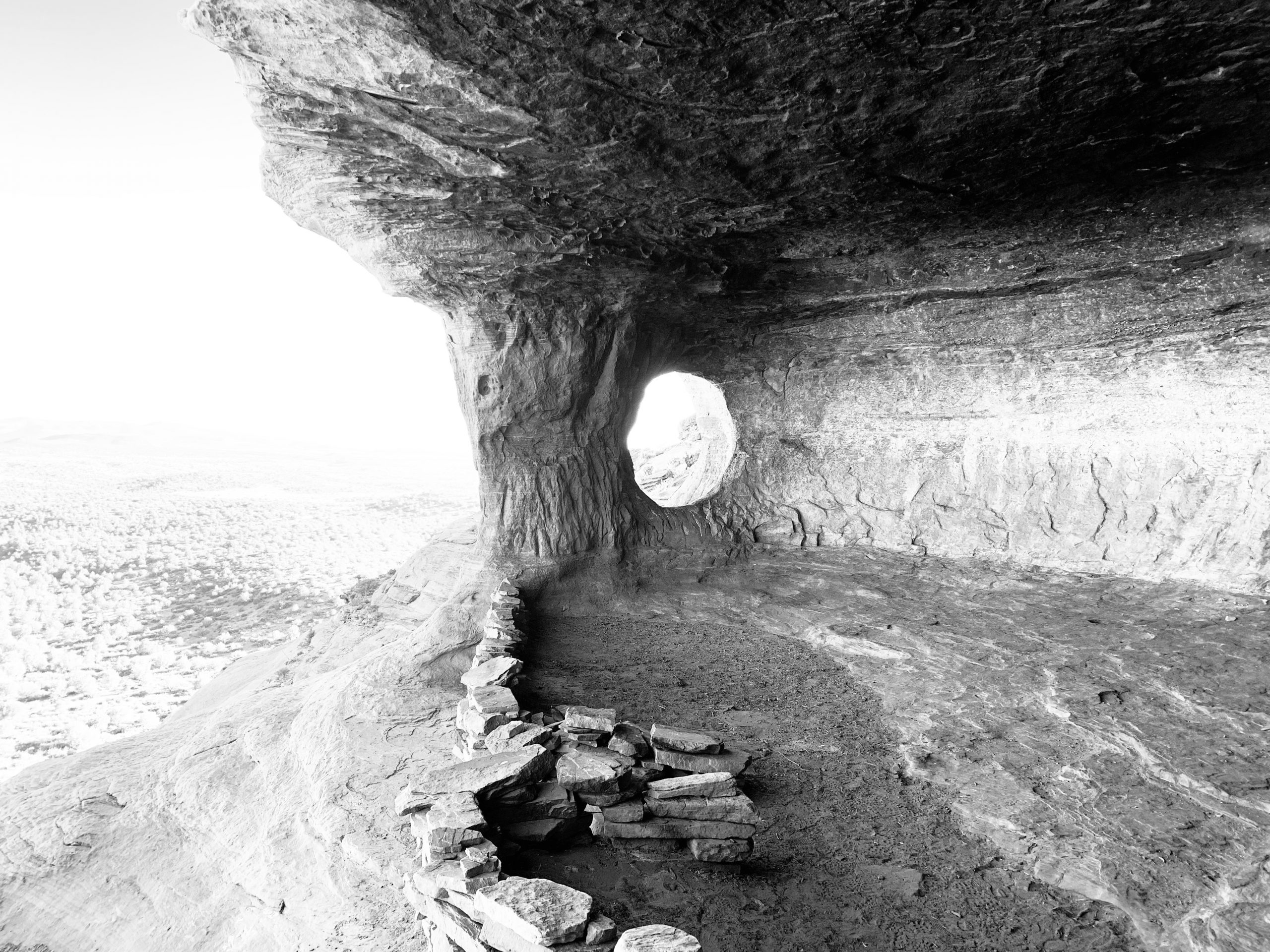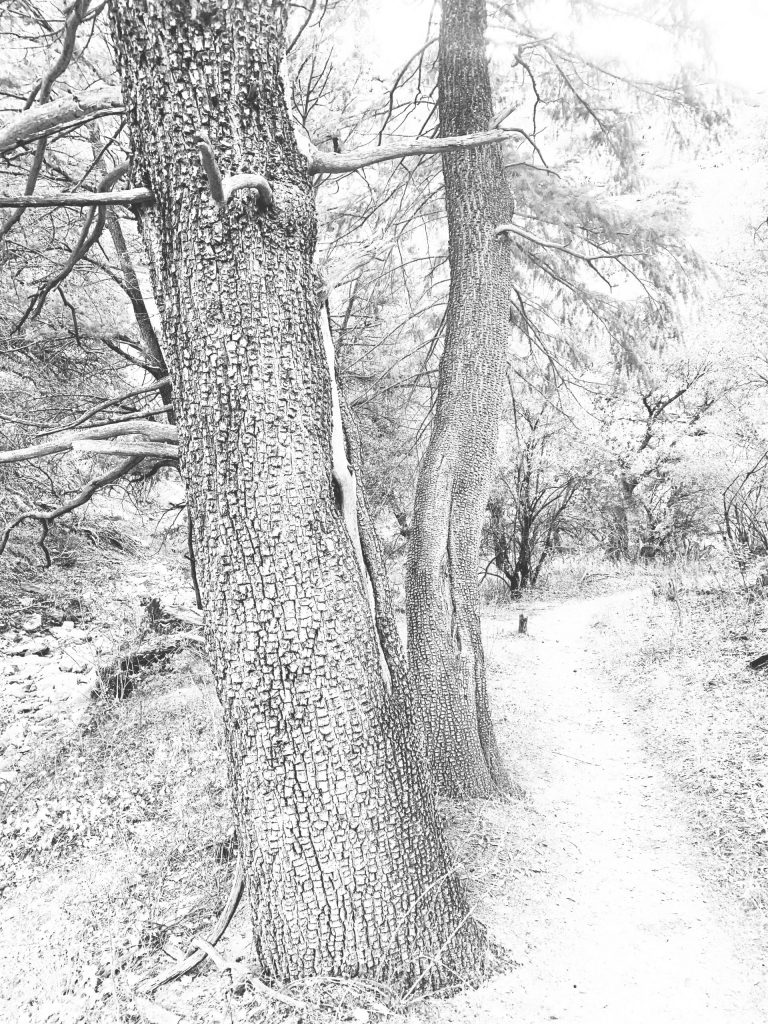Lost and Found In the Time of Pandemic
 “He allowed himself to be swayed by his conviction that human beings are not born once and for all on the day their mothers give birth to them, but that life obliges them over and over again to give birth to themselves.”
“He allowed himself to be swayed by his conviction that human beings are not born once and for all on the day their mothers give birth to them, but that life obliges them over and over again to give birth to themselves.”
― Gabriel García Márquez, Love in the Time of Cholera
It was near the middle of January 2020 when I first began following stories of the COVID-19. I was planning to be away on vacation for two weeks at end of February. We changed our plans to simple things, such as day trips and hiking. We spoke about camping. We chose to go places where almost no one else visited. We sought out the remote and visited a number of ruins in the deserts of Northern Arizona. We were on Navajo and Hopi Land.
One stop was made to a remote outpost manned by one forest ranger in his late forties to early fifties. He appeared lonely as there had been very few visitors, even before the big news of the pandemic set in. He was behind a counter dressed in a green uniform and a heavy ranger hat reminiscent of the Canadian Mounted Police. In the room were artifacts, pottery chards, broken things, remnants of a time past, and the overall feeling a death suspended by way of things that remained. He spoke intelligently with facts, figures, names, dates, and all manner of information. When we asked a question, the result appeared much like placing a coin in a juke box and hearing the song replayed once again. He was frozen on track with facts and figures. I call it loneliness because he seemed stuck, a skip on a record or CD, and this seemed the type of thing we might do when inhabiting the space of isolation for too long. He spoke about the land, the people who once lived there, and what likely killed them off. The usual culprit, he said, was disease, a novel virus, the thing that people had not been exposed to before. As we know, the Spanish Conquest involved many coming from Europe and with their coming came a virus or two or three. These were novel in that the Native Americans had not been exposed to these invisible threats and thereby had no immunity. The rest is a sad history, as we no longer have the Sinaguan or other Ancestral Puebloans.
I am a psychologist, psychotherapist, college professor in graduate psychology, and a published author of three books and one well-regarded dissertation. I love working with people and I have always had a fascination with phenomenon and understanding those things that happen when people find themselves in unusual and challenging circumstances and times. Most times I am in awe and amazement at the resourcefulness, courage, and candor individuals are capable of. I am inspired by the honesty on emotional levels imbued with wisdom that comes up at the most difficult of times.
In this series I am exploring what I refer to as the Lost and Found In The Time of Pandemic. Indeed, we have lost things during this pandemic. As I watch my brave clients traverse what all this means to them, I have also noticed all the things they have found. In psychotherapy we often look at our clients through many lenses. One lens is that of their challenges or risk factors and the other is their strengths or protective factors. Another way of looking at What we Lost and What we Found.
 Part One: Lost and Found in Childhood/The Kids of the Pandemic
Part One: Lost and Found in Childhood/The Kids of the Pandemic
Charlie is eight years old. A special age of innocence blended with magic and reality. I think we might call that the gift of magical realism, except that it is fact rather than fiction.
Charlie came for his last face-to-face session before transitioning to telepsychology sessions. We are doing video and audio moving forward. He is fine with this, as are his parents. He is a verbal child who is a bit too anxious to engage in play therapy. He said he had a secret, “Everyone is going to die.”
I asked what he meant.
“My whole family is going to die and then what will I do?”
Of course, in the time of a pandemic he is speaking about how the virus is going to take away his family. What he lost was the security that mom and dad and all his sibling would always be there. Buried in his narrative was something of a gem. He didn’t include himself among those who would die. Hmm, I thought. So, when in doubt I ask questions.
Charlie said he didn’t think he would get the virus because he was strong. “I never get sick, I just have the worry problem, but I don’t get viruses.” What we found was Charlie taking stock of his strengths and this was new to his counseling and an important building block for moving forward.
Quinn is thirteen. He just had a birthday today and we acknowledged it during our weekly therapy session. He is quarantined and out of school. His room is his boy cave and it comes complete with computers, a sound room, microphones, and all the fixings for creating his own music. He said he is practicing for an audition if school ever begins again. He wants to be in the eighth-grade musical. He has been practicing the song he wants to perform. He said his parents said he sounded like a bull horn. He said dad said, “It’s not great, son.” He was disappointed as he broke eye contact on our video platform and nervously looked away while touching invisible things on the back of his head.
I said, “I’m sorry.”
He said, “It’s ok, I have never been great at anything.”
He asked if he could sing me the song he is practicing. He said, “I think if I sing it for you it might have more emotion, because that is what’s missing. It shouldn’t matter if I don’t hit the notes right every time if I can only sing with emotion.” “Emotion is what we do.”
He practiced a few lines and the chorus. We spoke about how similar he was to the boy in the song. At first, he hesitated. Then he offered up his own comparisons. The end result was an emotional rendering of these lines that came complete with his tears,
On the outside, always looking in
Will I ever be more than I’ve always been?
Quinn cried and said, “I know I can do this because I felt it and I can bring that feeling back again, I know I can.”
And I know he can too. He is learning to own vulnerability and using it as a strength.
More on Lost and Found in the Time of Pandemic next week.
Nanette Burton Mongelluzzo, PhD, LPC

